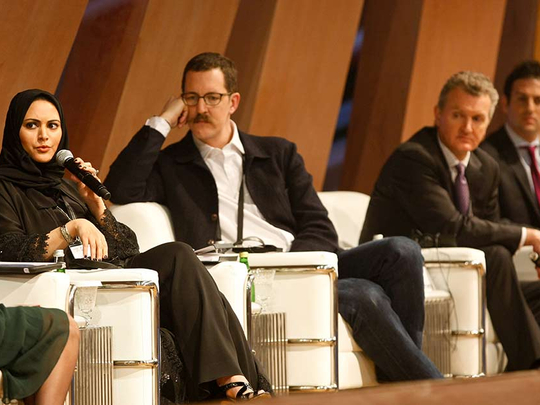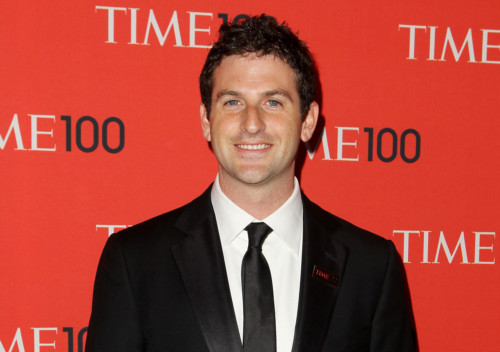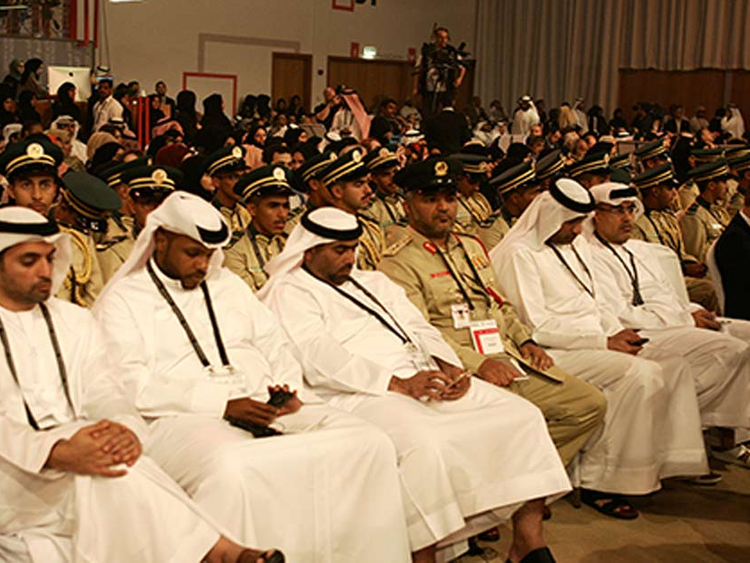
Day two of the International Government Communication Forum (IGCF) opened in Sharjah with a Keynote speech by Ellen Johnson Sirleaf, President of Liberia. Read the highlights of the second day of the event through our live updates here: (With inputs from: Mary Achkhanian, Staff Reporter)
4.45pm Discussion on The spokesperson: Between the Reality and the Future concludes
Top comments
James Rubin:
- Daesh has no spokesperson, instead, their crimes speak for themselves.
- As spokespersons, we have to tell the truth, but not necessarily the whole truth.
- Governments must be responsive to citizens. Policy is no longer made by representatives in office, but by the public.
- Conviction convinces. Individuals can assess whether spokespersons mean what they say.
- Good communications cannot fix bad policies, yet good policies can be jeopardised by bad communications.
- The media loves nothing more than to be able to say one hand of government does not know what the other one is doing.
- Key qualities of spokespersons are resilience and the ability to think on your feet.
- Journalists are trained in scepticism, yet this becomes inefficient when it turns to cynicism.
Mustafa El Khalfi:
- Spokespersons who do not respect the media and the role of the journalist damage the message they are trying to convey.
- Effective government communication is a collective process that uses both traditional and new media.
- A spokesperson's service to the people, is part of his service to the government.
Khaled Walid Hazem
- Spokespersons must position themselves as mediators between the public & the government.
3.30pm
- Panel discussion on The spokesperson: Between the Reality and the Future
Participants: Mustafa El Khalfi, Minister of Communication - Morocco; Robin Gordon-Farleigh, News Planner - UK Prime Ministry; Khalid Walid Hazem, Industry Solution Manager - Microsoft and James Rubin, US Assistant Secretary of State for Public Affairs.
Delegates listening to speakers on the second day of International Government Communication Forum 2015 at Expo Centre, Sharjah (Virendra Saklani/Gulf News)
2.50pm
Panel discussion: Muna Abu Sulayman, Jared Cohen, Ben Hammersley and Hugh Pinney on The Future of Digital Government Communication.
Key points:
Jared Cohen, Founder and Director - Google Ideas
- A digital world does not exist. The real world simply has two sides, a virtual one and a material one.
- We must not allow ourselves to be drawn in by the digital campaigns of violent extremists.
- Brazil's police force solved the problem of ambiguity surrounding their work, by filming themselves on the beat.
- Artificial intelligence is much more than Science Fiction, think prosthetics. In the future, everything we see, hear and touch will have smart features.
- When governments try to regulate social media, they inspire their citizens to come up with ways to bypass them.
.@JaredCohen: More credible voices are needed online, both religious & political, to challenge the radical views of terrorists. #IGCF15— @SharjahMedia (@sharjahmedia) February 23, 2015
Ben Hammersley, Journalist and Researcher on social networking tools
- Government need to become part of the conversations that are already happening.
- Governments should utilize new means of communication to better provide services to the public.
- Why does it matter that people play roles online, we all play several roles in real-life.
Muna Abu Sulayman, Presenter - MBC
- We live in a mixed media society, from those who never use new technology, to those who use nothing but that.
- A first for Saudi Arabia's government was the announcement of a Royal Decree live on television.
Hugh Pinney, Vice President News EMEA - Getty Images
- Social media allows you to take a targeted message to a targeted audience.
- Communication presents a two way dialogue, during which the value of authenticity is measured.
12.40pm 'Lebanon deserves to be saluted'
"Lebanon bears the burden of millions of Syrian refugees. No single country was able to do that. Lebanon deserves to be saluted," said Lakhdar Brahimi, Algerian United Nations Diplomat.
Lakhdar Brahimi: #Egypt must thank #UAE & #SaudiArabia for support in regaining its position as a leader in the Arab World. #IGCF15— @SharjahMedia (@sharjahmedia) February 23, 2015
Excerpts from his intervierw at IGCF15:
Every single government in the Arab world can undergo change, but if they refuse to change, they will become victims of change.
Iran is part of many problems happening, but it is also part of the solution.
Lakhdar Brahimi: It is not possible for us to ignore the existence of Iran, but we can object to their control in Syria & Iraq. #IGCF15— @SharjahMedia (@sharjahmedia) February 23, 2015
The fundamental cause of what's happening in Iraq is the American invasion & the conditions of that has led to emergence of Daesh.
A crisis cannot be limited to a certain territory, it will impact all the neighboring countries, just like in Syria.
Lakhdar Brahimi: Empowerment of women & non-interference of army are two main factors in Tunisian success. #IGCF15— @SharjahMedia (@sharjahmedia) February 23, 2015
Iran has more power in Syria than Bashar himself and they also have power in Iraq and Yemen.
The capacity of Arab governments to reach out to people is really disappointing and not up to expectations.
11.50 am Lessons learnt
Media sensationalism created more fear and distracted from the efforts of Liberian government communication, said Ellen Johnson Sirleaf, President of Liberia. Traditional burial practices were a major constraint to the fight against Ebola, she added.
#IGCF15 Social media can be based on sensationalism. Photos of #Ebola victims made our message more difficult. http://t.co/0f1NeN4xdd— Gulf News (@gulf_news) February 23, 2015
There is only 1 doctor per 100,000 Liberian citizens. More Liberian doctors work in the US than in Liberia.
To maintain control of Ebola epidemic through use of security forces was an incorrect response. Agenda for transformation includes economic recovery, improvement of healthcare facilities and education reform, she said.
11.35am Fear and denial after Ebola
Excerpts from Ellen Johnson Sirleaf's address:
Reaction to Ebola epidemic was confusion, denial and fear, she said. Public fear turned to distrust of the government, as they were seen as unresponsive. Liberia faced global stigmatization when coping with the epidemic.
However, Liberia's first Ebola case, March 2014, did not attract a national response as it was seen to be isolated one. Ebola threatened the lives of 1.4 million Liberians, nearly 25,000 people per month. Global stigmatization caused more fear and destruction than Ebola itself. Our fears made us committed, resolute & determined to secure a better life for our people, Ellen Johnson said.
Liberian President Ellen Johnson Sirleaf (AP)
Ellen Johnson Sirleaf: Our fears made us committed, resolute & determined to secure a better life for our people. #Ebola #IGCF15 #Liberia— @SharjahMedia (@sharjahmedia) February 23, 2015
The social effort, empowerment and ownership by Liberian communities, was the key to combating Ebola, she said. UN Report confirmed that Liberia had no new cases of Ebola after 21 days in January 2015. Full eradication of Ebola will not be secured until we develop medication that is preventative and curative, she added.
Ebola is neither a Liberian or a West African issue, but a global one for which we are all responsible, she said.
11.25 am Ebola and Challenges
Ellen Johnson Sirleaf, President of Liberia, speaks about the Ebola epidemic in Liberia and how it was handled despite the challenges.
The epidemic affected countries and showed the weakness of the healthcare systems in these countries, she said.
Ellen Johnson Sirleaf: Reforms set to focus on health care & education until 2018, to make Liberia a "middle income" country. #IGCF15— @SharjahMedia (@sharjahmedia) February 23, 2015
11.00 am
Ellen Johnson Sirleaf, President of Liberia, to deliver Keynote Speech on Day two of IGCF 2015











